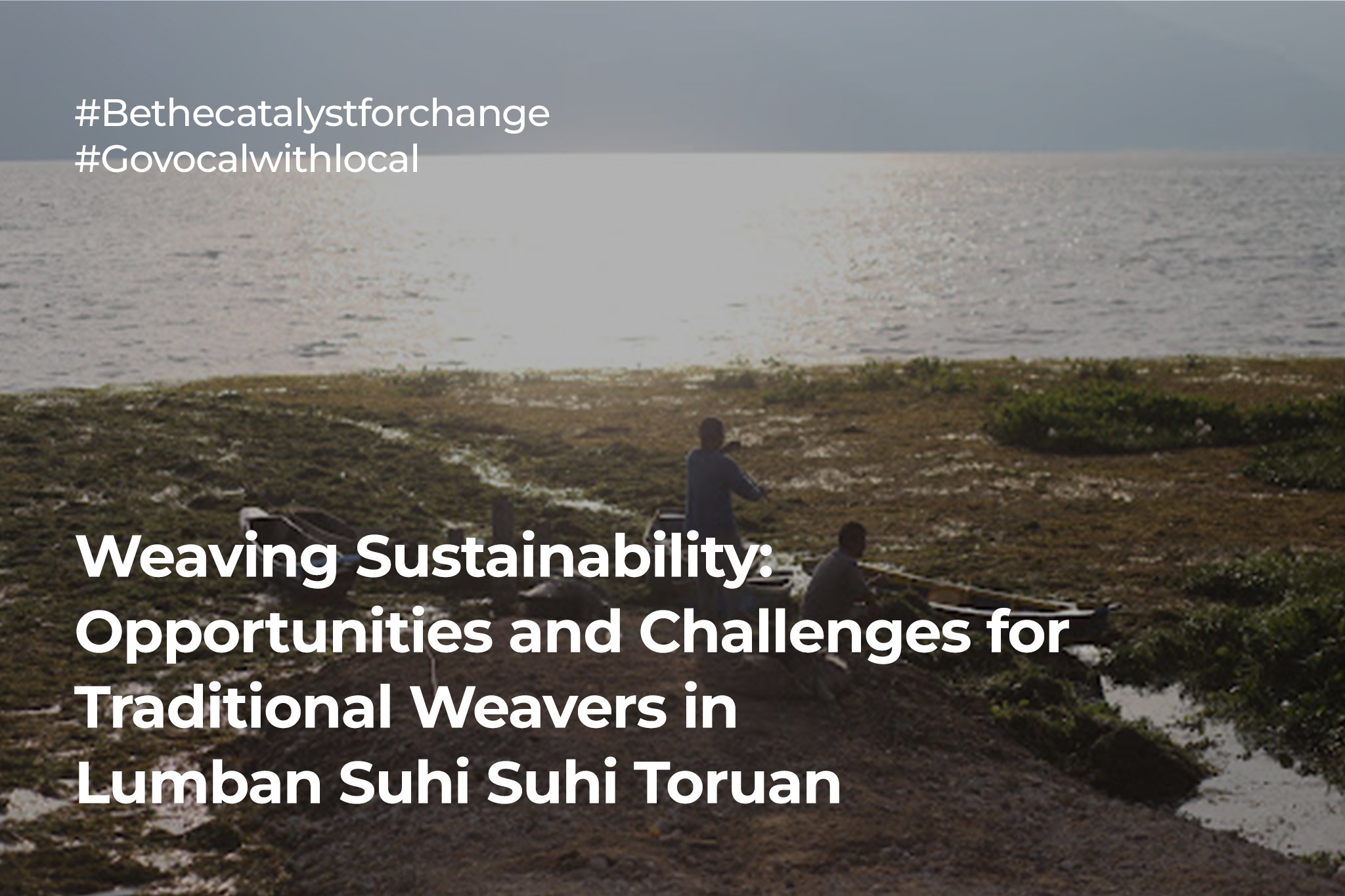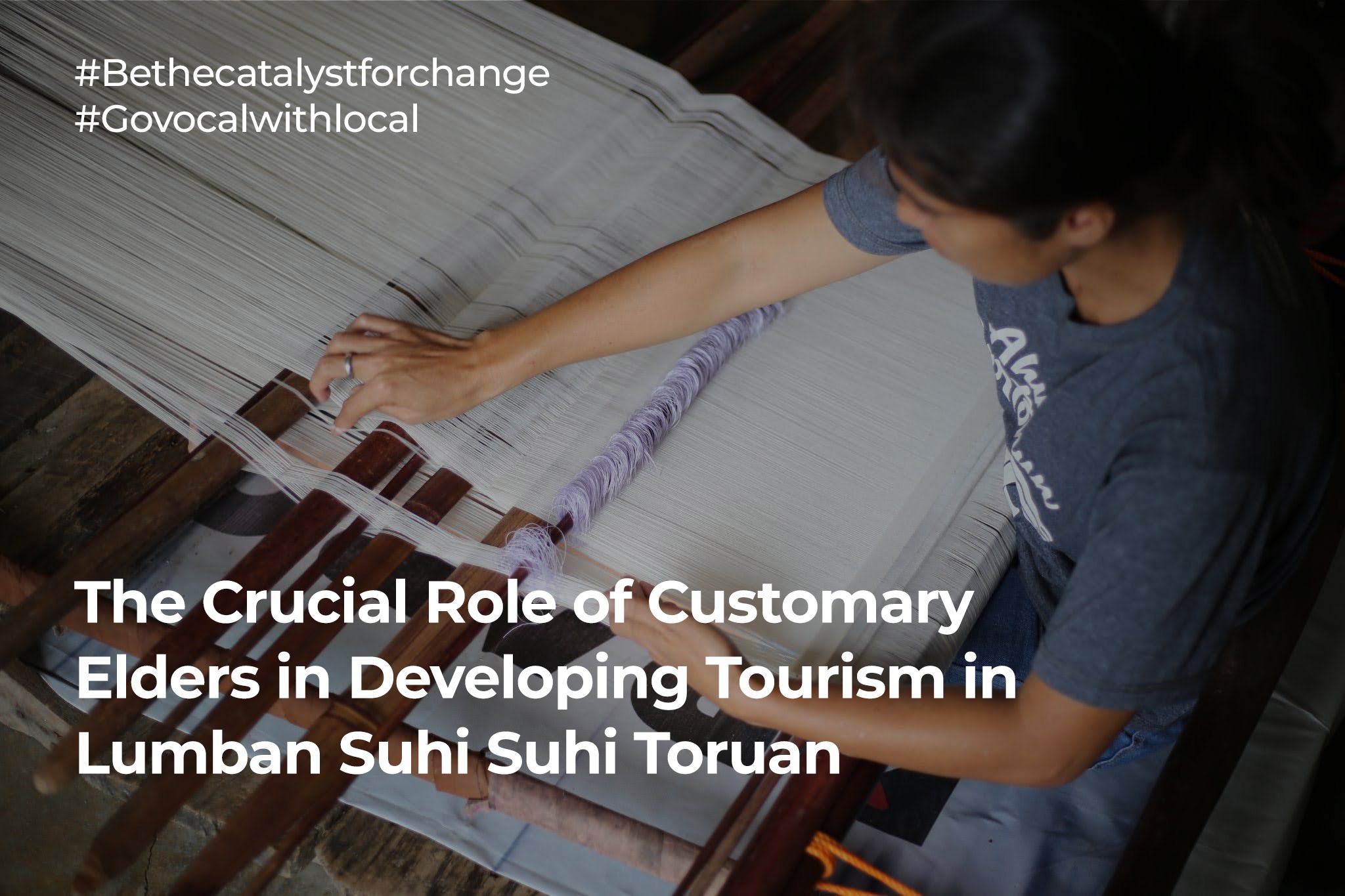Weaving Sustainability: Opportunities and Challenges for Traditional Weavers in Lumban Suhi Suhi Toruan
As the world moves towards more sustainable practices, there is a growing opportunity to encourage traditional weavers in Lumban Suhi Suhi Toruan, one of the weaving centers in Indonesia’s North Sumatra, to adopt sustainable methods. However, this transition comes with its own set of challenges.
The village of Lumban Suhi Suhi Toruan on Samosir Island in Lake Toba may appear picture-perfect with its scenic beauty and rich culture. However, beneath this charm lies the reality of many women who have taken up traditional weaving as the primary source of income for themselves and their families.
Although most families in this village are farmers or fishermen, the traditional weavings produced by the women are their mainstay and economic pressures usually leads to picking the easiest way to make money
Lumban Suhi-Suhi, especially its Hutaraja hamlet, is known as one of the production centers of Ulos, the traditional cloth of the local Batak Toba people made using he laborious Ikat dye resist technique. But economic pressure has slowly shifted production to the easier and faster to make songket, a weaving decorated with the supplementary weft technique.
The majority of weavers there have now even turned to producing Uis Nipes, a customary cloth of the neighboring Batak Karo tribe which is in high demand as weaving is no longer practiced by the Karo farmers.
Economic pressure also brought with it the slow demise of natural dyes and handspun cotton yarns, replace by the much cheaper chemical dyes and synthetic yarns.
To help answer these challenges, the Lithuanian Government working with Toraja Melo Foundation and its business arm, AHANA, have introduced sustainable weaving practices and made available the necessary knowledge not only to open up new markets for their products but also better manage their business and household finance.
Sustainable weaving practices can open up new markets for traditional weavers. Eco-conscious consumers are willing to pay a premium for products that are ethically produced. By adopting sustainable methods, weavers can tap into this growing market, thereby increasing their income and improving their standard of living.
Additionally, sustainable practices can reduce production costs in the long run, further enhancing economic benefits and can significantly reduce the environmental impact of textile production.
By using natural dyes, organic fibers, and energy-efficient techniques, weavers can contribute to the conservation of the local environment. This is particularly important in a region like Lake Toba, where the ecosystem is delicate and needs to be protected for future generations.
Sustainable weaving practice will also not only help in preserving the local traditional art form but also attracts tourists who are increasingly seeking authentic and sustainable cultural experiences.
To address one of the primary challenges for traditional weavers to become more sustainable -- access to wider market – weavers were introduced to the AHANA e-commerce platform, to







 And now, as Indonesia's proud 12th B-Corp Certified company, we wear our commitment like a badge of honor, a pledge to protect both our planet and the stories it holds.
And now, as Indonesia's proud 12th B-Corp Certified company, we wear our commitment like a badge of honor, a pledge to protect both our planet and the stories it holds.
